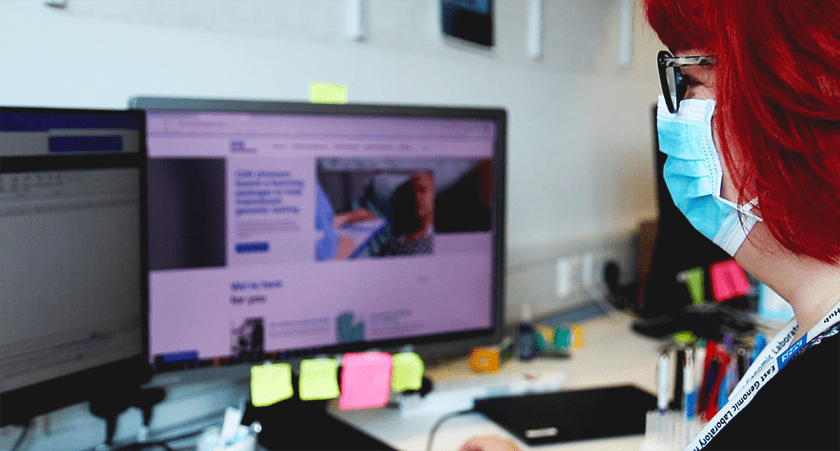As part of Healthcare Science Week we spoke to Kate Downes, Lead Scientist for Rare and Inherited Disease at East Genomic Laboratory Hub.
Listen to Kate's story
Link: https://youtu.be/hGE3tl1WvdA
What’s your role at CUH?
I work as the rare disease clinical scientist lead for the East Genomic Laboratory Hub. I’m based at the Cambridge Genomics Laboratory within Addenbrooke’s providing support for genetic testing for patients across the East (East of England and East Midlands).
Genomics is the study of our DNA and we're using this in healthcare to diagnose patients with rare genetic diseases and to better understand patient’s cancers.
Why did you choose to work at CUH?
I joined CUH in October 2019.
Before that I worked at the Sanger Institute and the University of Cambridge working in human genetics and genomics. At the University I was involved in projects where we were identifying the genetic reason why patients had rare disease. I developed the skills and experience to enable me to register as a clinical scientist.
My current role uses my skills as a clinical scientist alongside experience that I have gained previously. I bring a wealth of experience from academia to support the rare disease testing that we're currently performing in the NHS, as well as knowledge of technologies and scientific evidence that we will use to develop new genomic tests.
I'm excited to be involved in bringing this new knowledge into the NHS to provide better care for patients.
I love being part of a community that is translating scientific expertise and knowledge of new technologies into the NHS to help patient care.

What does a usual day look like?
My role is to provide support to our clinical scientists and our laboratory teams who provide rare disease testing for our patients.
My days are really varied from helping members of staff here at CUH with questions about laboratory tests or genetic analyses, to discussions about strategy of how we deliver future genomic tests for patients across the NHS.
I talk to many people with different skills and experience, including clinicians and scientists across CUH and the East Midlands and East of England. I spend time analysing patients’ data to produce genetic reports and speak with clinicians about the results that we've generated for those patients.

How does your role impact on patient care?
Our team really does make a difference to the lives of patients with Rare Diseases and their families. We can provide a confirmed diagnosis for a patient and their family to help them understand their symptoms and prognosis and to inform on the most appropriate treatment.
A diagnosis can also help a patient access specialist health care as well as research studies and clinical trials that can be really important, as well as essential support networks.
What do you enjoy most about your job?
I love genomics! I've worked in genomics for my whole career.
I love being part of a community that is translating scientific expertise and knowledge of new technologies into the NHS to help patient care.
One of the great things about my role is that I work with a huge range of different people. For example, I speak to clinicians about patients results, I talk to my fellow clinical scientists who are trying to work out what a genetic change means in a patient, I talk to members of our lab teams about experiments that they're doing to validate new tests and I get to work with academic partners to bring translational research into the laboratory.

What do you do in your spare time?
To relax and for fitness I swim. I often swim long distances in lakes, rivers and the sea.

